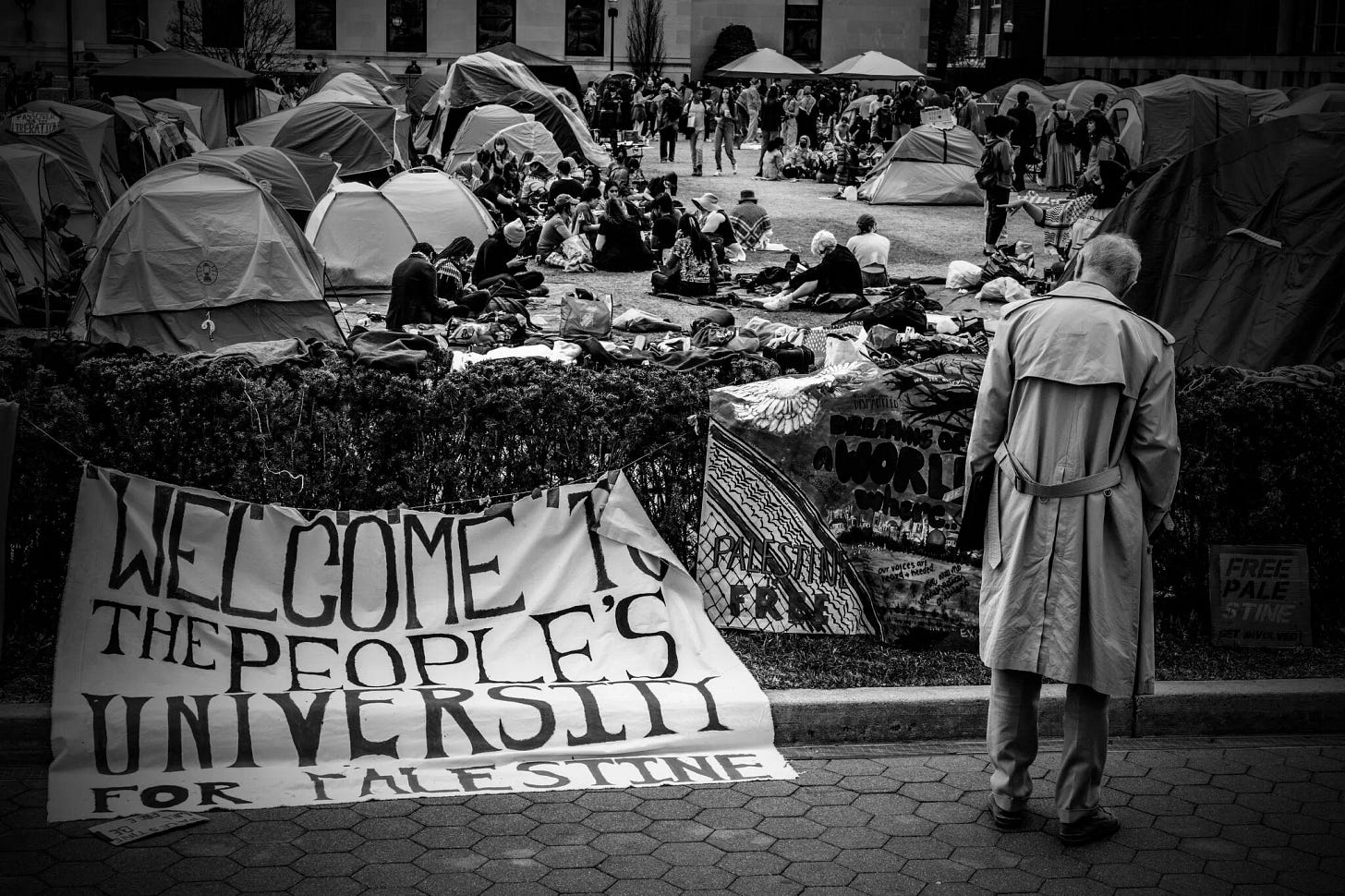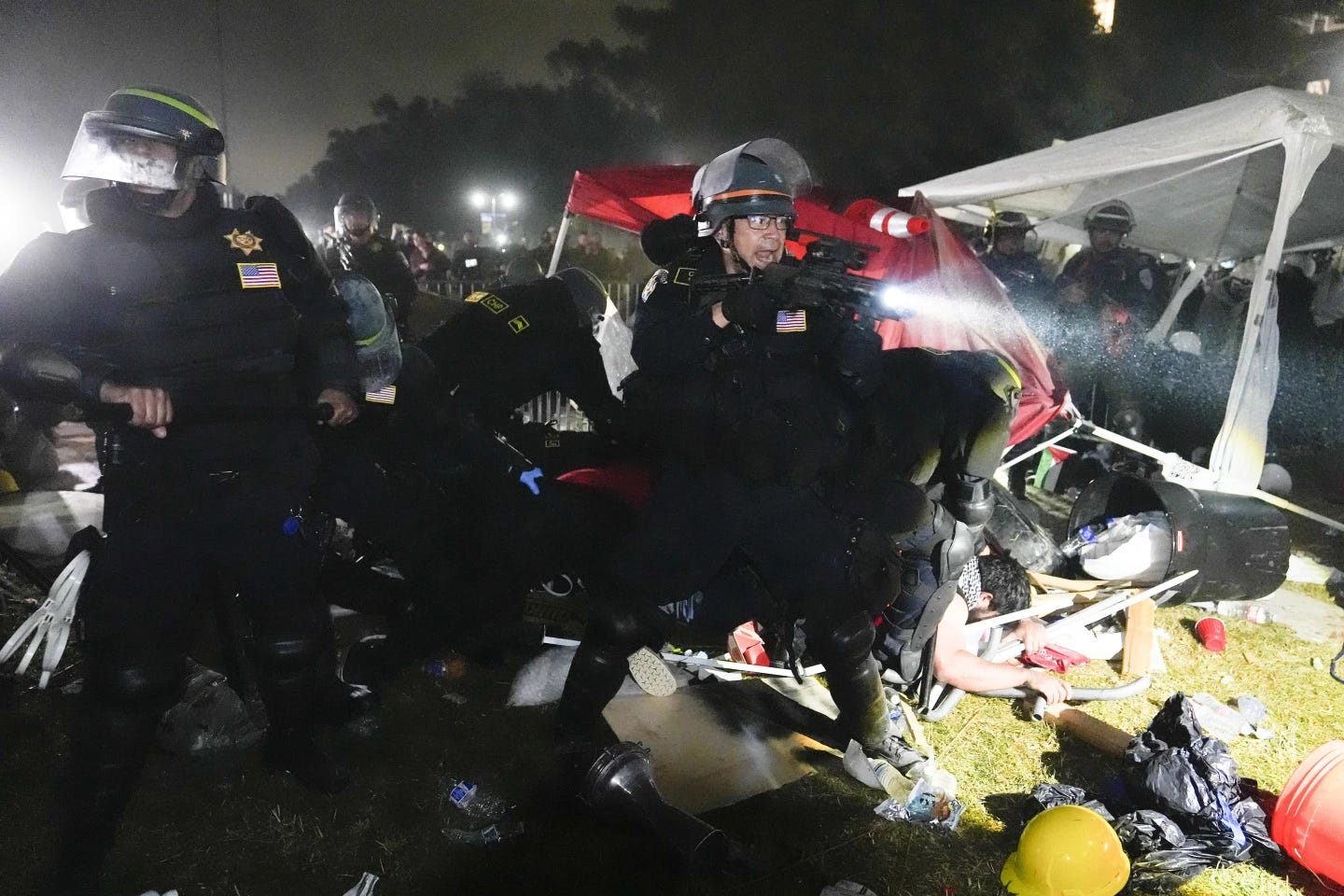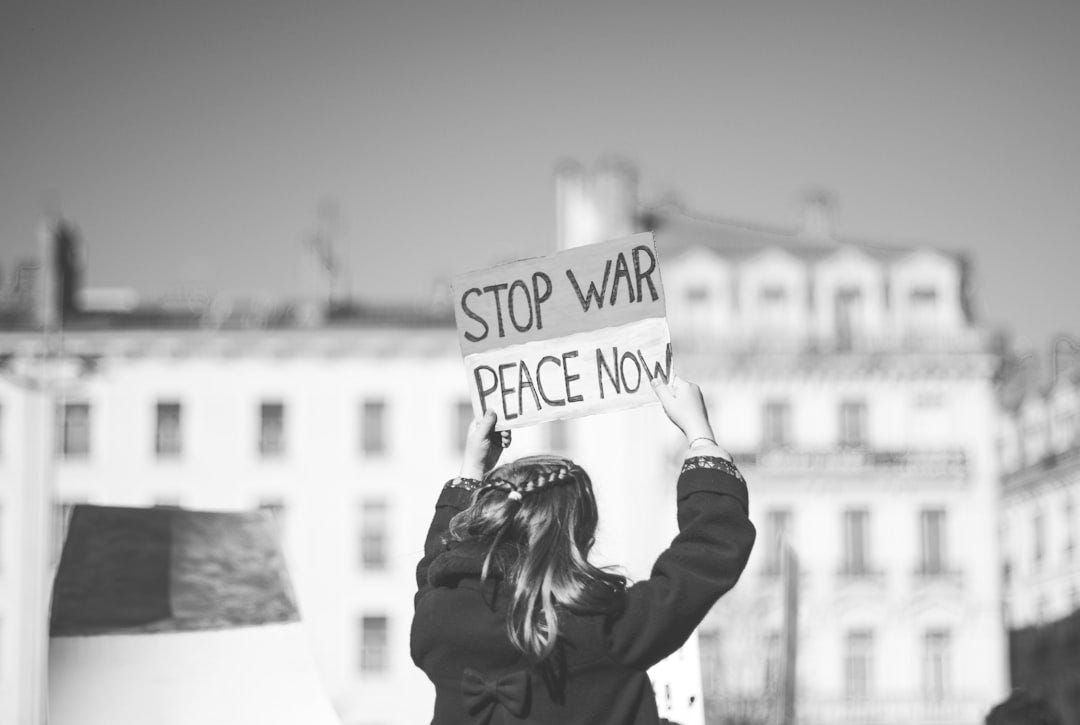As the largest American public institution, schools reflect the country's most severe social issues, including race and religious belief. It is no surprise that conflicts continue to emerge within educational settings, especially during the last few years when a new but familiar political storyline has been resuscitated by the ruling class. Recent tensions on university campuses, such as those involving Palestinian anger and the rights of Jewish students, highlight the ongoing strife. Student protests, reminiscent of past movements, face intense scrutiny and suppression, underscoring the resistance against acknowledging and addressing systemic discrimination and the always ever-present “Racists”.
The matters of race, inequality, and prejudice or DEI (Diversity, Equity & Inclusion) are among the fundamental concepts and elements that weave the canvas of modern American society. In a world where the U.N. "Declaration of Human Rights states that "all human beings are born free and equal in dignity and rights," inequality becomes the core and source of precariousness, exclusion, and anxiety that lead to global catastrophes. But this story is not about what is driving inequality and race it is ”Hate”. The driver here is Hamas, who slaughtered women and children in Gaza last year. Palestinian support for Hamas in the West Bank and Gaza remains high, according to a Palestinian poll released on March 20. That support has increased since the Iran-backed terrorist group attacked Israel on October 7.
America has now become the target of the battle for control of the political left. Antisemitic chants and even threats against Jewish students have brought the tension of the Middle East onto U.S. college campuses. American politics might be the country that knows more about racial inequality, segregation, and injustice than any other state in the world. No wonder, by the end of the first quarter of the XXI century, American society is searching for and promoting ways to end those wounds on the face of humanity once and for all.
But today's means to raise a new generation of socially aware and mindful Americans look more like a plan by the despots to pull a country into another potentially catastrophic conflict only comparable to the scale and outcomes of the Civil War.
In recent years, campus activism, fueled by power-hungry politicians, has become increasingly volatile, sparking debates about the limits of free speech and the appropriate role of colleges in facilitating political expression. Student protests are the voice of the youth in every institution of higher education. However, it is worse when these demonstrations have more to them than meets the eye — and are far from the actual truth. It is a perfect storm for unrest, especially in a post-truth world, when demonstrations are fueled by totalitarian political influences that motivate hate. Over the last few years, student demonstrations have become increasingly volatile. This has caused discourse on free speech thresholds and labeled “misinformation” and how much universities should get — and should not be involved in political expression on their campuses, especially when expressing truth.
"Today, the battle for the minds of the people is a battle for control of the narrative. Universities have been at the forefront of this battle, and free speech on campus is a significant but overlooked casualty." Fueled by the 2016 election, a censorious culture was already evident on university campuses, undermining the battle of ideas. In 2023, the universities and their donors have increasingly controlled the social and political narrative on college grounds. They adopt sociopolitical positions as institutional goals to comply with the corporate idealogues, lobbyists, and the social elites who control the university's funding.
It is no coincidence that the rise of the "radical activist university" has coincided. Right across the tertiary sector after high school, there has been a marked shift in focus away from education and towards ideology, with control shifting from Constitutional liberty to corporate prejudice being operated by the deep state, a Trojan Horse for Orwellian Control.
Activism and hostility towards free speech usually go hand in hand. The former tends to give rise to the latter. This shift in the debate recalls George Orwell's famous words, "Who controls the past, controls the future: who controls the present controls the past." (“We Measured the State of Free Speech On University Campuses”)
The current turmoil enveloping numerous Ivy League campuses is strikingly like the student protests of the late 1960s. Anger over the Vietnam War and Columbia University's proposal to build a segregated gym close to Morningside Park had made the university a focal point of student discontent fifty-six years earlier. Today, pro-Palestinian protesters have just taken over and occupied Hamilton Hall. This academic institution was previously taken over in 1968, reminiscent of that earlier history. These protests have left a lasting history that is still growing today.
But there's a troubling element to these protests because of the recent surge in religious hate crimes against Jewish people and even in Christian, pro-life groups, which some Palestine and Islamic campaigners are purportedly responsible for, which has widened societal differences and increased tensions. Many observers see these gatherings as planned diversionary tactics intended to sow strife and undermine social cohesiveness rather than as a sincere expression of political opposition.
According to reports, this hostility has been fanned by the divisive language of hate groups and prominent individuals like George Soros funding the anti-Semitic hate happening on college campuses across our country. Soros's nonprofit has been bankrolling organizations that have hosted pro-Palestinian rallies, according to a D.C. watchdog group. George Soros is paying student radicals who are encouraging a nationwide explosion of Israel-hating protests. George Soros and his hard-left acolytes are paying agitators who are feeding the explosion of radical anti-Israel demonstrations at colleges across the country (NY Post).
Last week, these violent riots have mushroomed nationwide. Copycat tent cities have been set up at colleges including Harvard, Yale, Berkeley, and UCI in California, the Ohio State University, and Emory in Georgia — all of them organized by branches of the Soros-funded Students for Justice in Palestine (SJP) — and at some, many students have clashed with police.
Orange County’s prominent university, UCI, known for its research and medical school, was besieged by helicopters, drones, and at least 20 police departments from Orange County, California. The Gaza protests crept onto the campus on May 15, as student activists seized the UCI Physical Sciences Lecture Hall building and tied cables around the outside doors, sealing either students in or keeping law enforcement out. Police officers IMMEDIATELY issued a dispersal order and threatened to use "less lethal" (including rubber bullets) force on those remaining in the park adjacent to the science hall.
The actions at UC Irvine began amid protesters’ calling on the university to divest from companies with ties to Israel. (“UC Irvine protest: Newport Beach mayor claps back at Irvine mayor ... - AOL”) The campus announced in a social media post that a group of protesters had entered a lecture hall, with the building takeover broadcast over Instagram. Protesters hung signs that read, “UC Divest from genocide,” while others erected a barricade with wooden pallets. Police officers moved into the campus Wednesday evening armed with nonlethal projectile launchers and ripped down the makeshift barriers and encampments.
Just as at a U.C. Board of Regents meeting, UCI disclosed that it had $32 billion in assets tied to Israel. At that same meeting, a spokesperson showed no interest in divestment whatsoever. Student activists were defiant, promising that protests would continue until UCI severed all its financial ties to Israel. Their chants echoed across the nighttime park, "From the river to the sea! (“Irvine, CA: 20 police departments dismantle UCI Palestine solidarity ...”) Palestine will be free!" The heavy police response is consistent with most universities. As with most schools administration had suspended several students, one important note is that many of these agitators were NOT students, and several were facilitators.
Is this a First Amendment – Freedom of Speech, or is this racially driven and religiously determined?
The movement appears to have been funded by localizing and coordinating through social media. This is not a First Amendment issue; it is a “Wag the Dog” distraction by the elites trying to keep these political Communists in place with a worldwide agenda.
“Wag the Dog is an interesting movie that explores the relationship between media and politics. In the film, a spin-doctor fabricates a war and creates all kinds of distractions to help his candidate win re-election as President. The plot is outlandish but also realistic enough. If you’re into conspiracy theories, you might think that it could actually happen that way. But beneath the absurdity to which the plot eventually rises is a revealing narrative about politics and the media.” There is some familiarity with this political conspiracy scheme.
Politicians and media sources have exacerbated societal rifts over the last three years by legitimizing aggression towards specific groups and widening social divides. The demonstrators claim that their goals are straightforward but significant: they want Congress to stop providing financial and military support to Israel and Democratic voters to boycott elected officials who support these policies. But the Biden administration actually paid $6 billion to Iran, which translates to $6 billion for Hamas.
During the Trump administration, he had prepared a peace plan - it was called "the deal of the century" by Prime Minister Netanyahu, but was quickly dismissed by the Palestinians as one-sided and never got off the ground. So we ask, why are Israel and Gaza at war now?
Gaza is ruled by Hamas, an Islamist group that is committed to the destruction of Israel and is designated as a terrorist group by the UK and many other countries.
Protests have interrupted daily life across the country, causing sections of college campuses to close, trains to be delayed, and highways to be blocked as hundreds of thousands take to the streets. Beyond the boundaries of the university, protests and political activism cause inconvenience to students and their families who have dedicated their hard-earned funds to obtaining a top-notch education for their children. Many people view their choice to register in elite schools, such as Ivy League universities, as a significant investment in their future, signifying aspirations for career advancement and personal fulfillment. The idea that Israel's response to Hamas attacks amounts to an illegal invasion of Gaza is at the core of these protests. At the same time, pro-Israel advocacy groups are pressing Congress and federal authorities to investigate the rally organizers' possible connections to terrorist groups and sources of finance.
What has emerged is a vast network of left-leaning American philanthropies working with international organizations, some of which have been outlawed by Germany and Israel due to their purported links to terrorist organizations. Because social media channels are primarily used for coordination, there are concerns regarding the movement's actual goals and sources of support.
Some interpret these events as a question of free speech, while others see them as planned diversionary tactics powerful politicians use to further their goals. Concerns over these rallies' disruptive nature and potential effects on students' well-being and academic performance are, in fact, becoming increasingly pressing. Historically viewed as strongholds of free speech and intellectual inquiry, universities are currently facing the difficult task of balancing protestor rights and the requirement to preserve a supportive learning environment.
Their campus frequency raises concerns over the demonstrations' long-term impact on the next generation. Students' attitudes and ideas may be shaped in only partially understood ways if they are exposed to such significant political involvement during a critical period of their lives. Furthermore, the polarization and division frequently accompanying these rallies can obstruct productive communication and attempts to reach consensus on complex topics.
The current surge of political protests and college activism is a complicated and diverse challenge requiring thoughtful analysis and nuanced comprehension. Even though these demonstrations could seem like superficial manifestations of political disapproval, it's essential to understand any underlying motives and covert objectives at work.
It is becoming increasingly clear that these protests are part of a larger agenda influenced by outside factors and motivated by political considerations. The necessity for a more thorough investigation of the forces operating behind the scenes is highlighted by the recent rise in hate crimes committed against specific groups and the alarming statements made by some demonstration organizers.
Moving past superficial analysis, we must seek to comprehend the underlying mechanisms behind these protests as the country struggles to deal with its difficulties. If we do not look further and understand what is happening soon enough, these mechanisms will turn against us. With all its modernized tendencies, society has grown nonchalant in its treatment of political developments. Most people think, 'This is not going to affect me, so why burn my mind thinking of its repercussions?' But this very thought is what eventually drives trouble in the end. The blot grows bigger before you know it.
It even reminds one of this quote by Martin Niemöller:
"First, they came for the socialists, and I did not speak out—because I was not a socialist.
"Then they came for the trade unionists, and I did not speak out—because I was not a trade unionist."
Then they came for the Jews, and I did not speak out—because I was not a Jew.
Then they came for me—and no one was left to speak for me."
(“Then They Came for Me: Martin Niemöller, the Pastor Who Defied the ...”)
Niemoller was talking about the Germans' hand in the persecution of Jews. Many Germans, by being silent, contributed just as much as violence did to the destruction of Jewish lives. This quote, displayed at the United States Holocaust Memorial Museum, was also a reminder to Niemoller of his own guilt in not doing enough to resist the Nazis.
One need only look at history to know the harm that passivity can cause. So, when new-age troubles brew, it is wise for all of us to deconstruct the truth behind them and disrupt their growth. After all, awareness is the best bet against all post-truth sentimentalities.
Learn how to break your silence. Learn how to break away from passivity.






